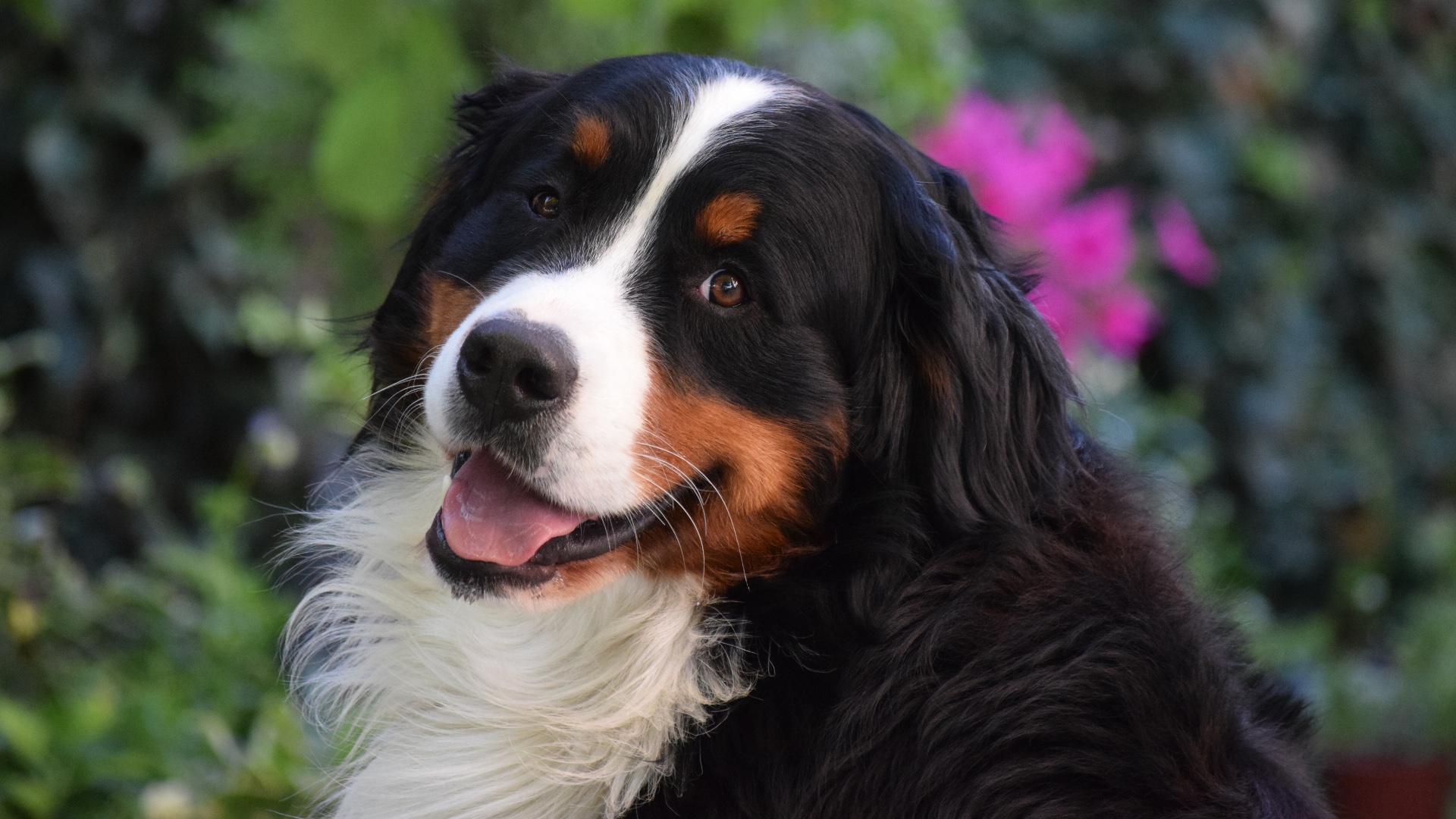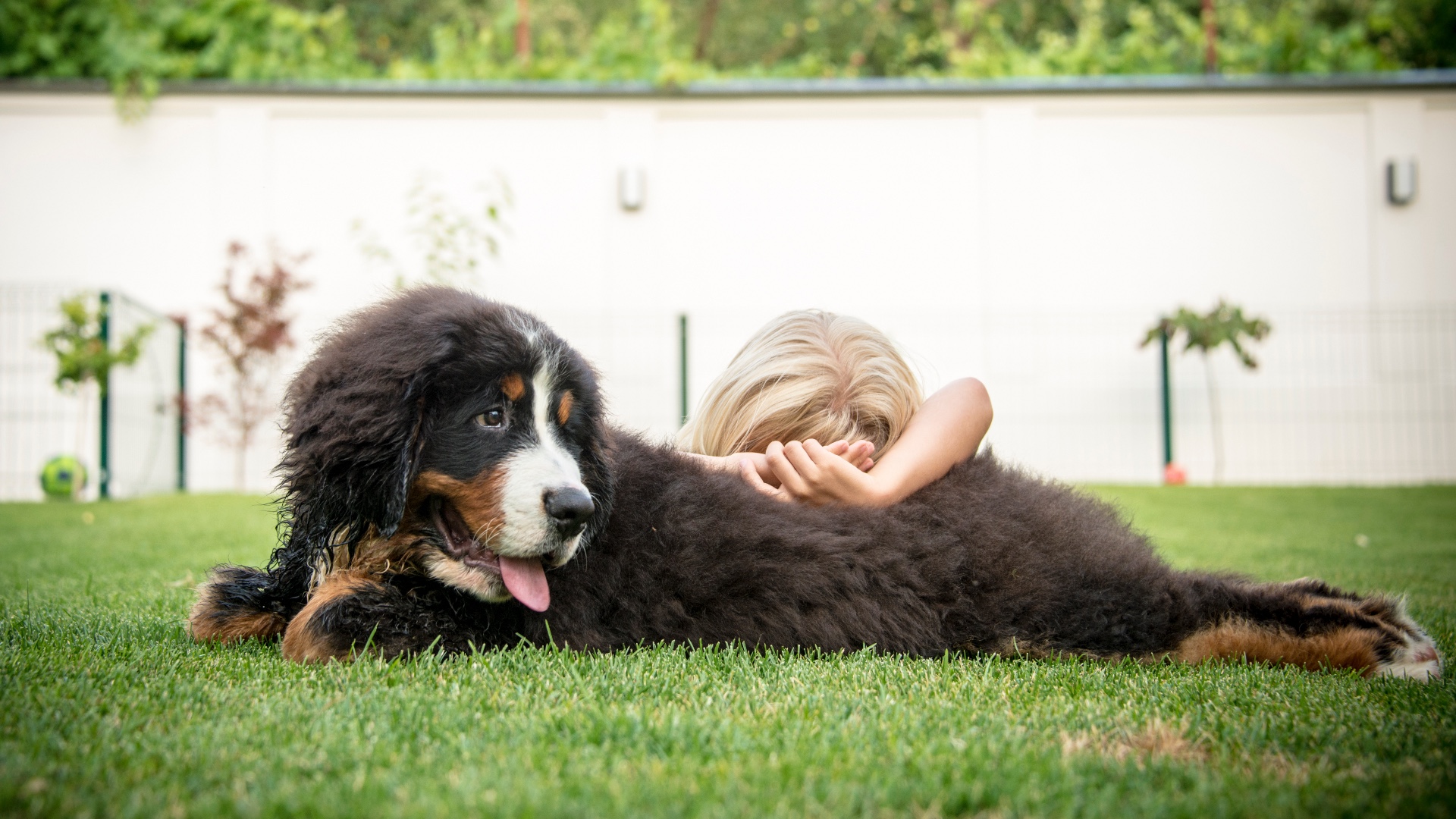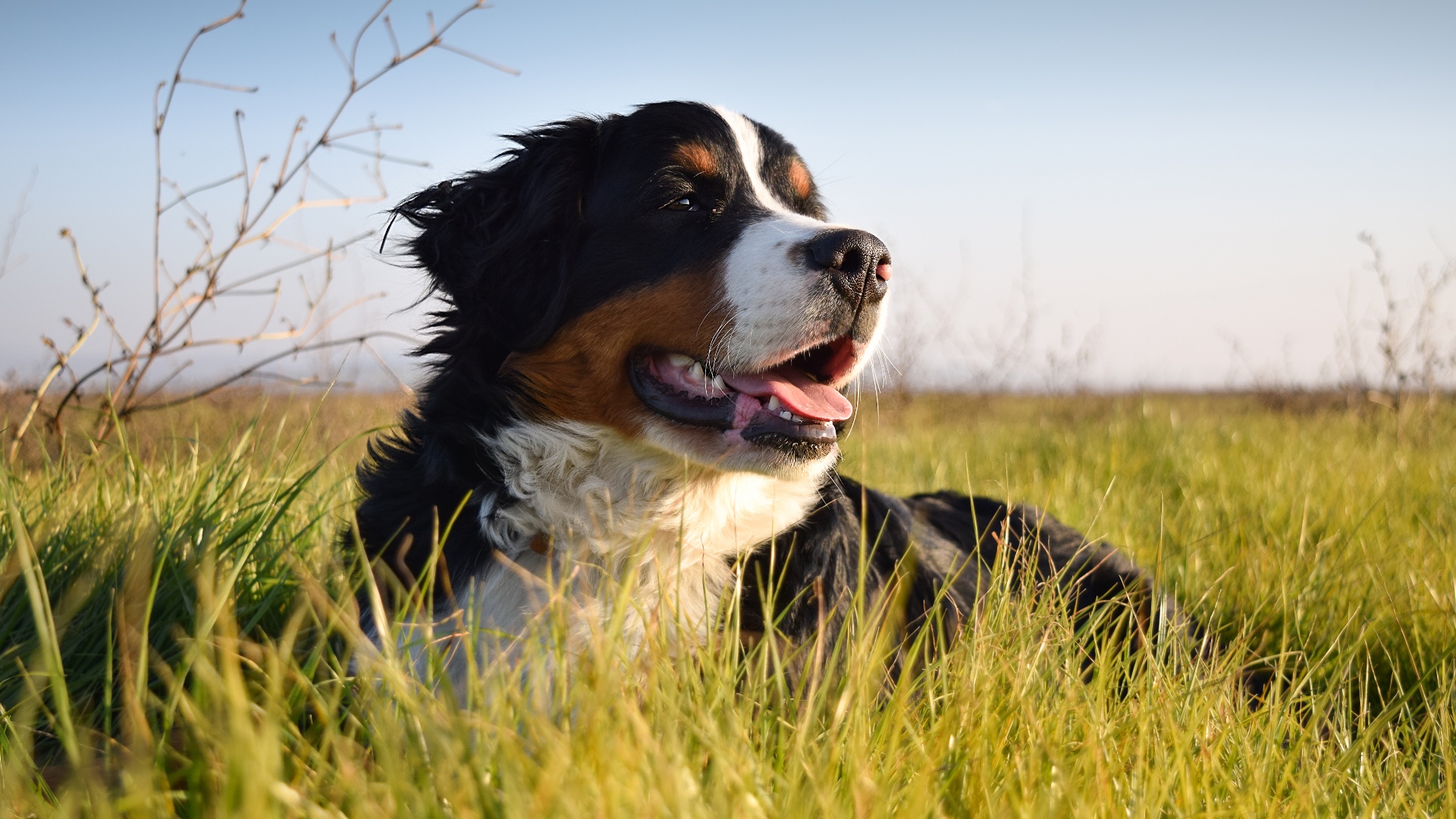Bernese Mountain Dog: Breed profile
While they may shed a lot, the Bernese Mountain Dog more than makes up for all that hair with their gentle and affectionate nature

Having descended from Roman mastiffs, Bernese Mountain Dogs originated in Switzerland – Bern, to be exact, hence their name. You may be familiar with them because these gentle giants have been courted by many celebrities from Sarah Michelle Gellar to Courtney Cox. They’re also popular working and watch dogs due to their stamina, size and strength.
Perfect for outdoor living, you'll find they are energetic yet easy to train, even though you will need to have space and, in the early months certainly, a good dollop of patience. It doesn't take long for an amazing canine companion to emerge, however, and you should certainly not be put off by their size (some 25 to 27 inches in height). Time, then, to take a closer look.
How much exercise does a Bernese Mountain Dog need?
Life expectancy: 6 – 8 years
Average weight: Male: 110lbs/50kg Female: 105lbs/48kg
About the same as: Two trick tires
Since they were bred as working farm dogs, this breed has a lot of energy. What's more, Bernese Mountain Dogs will remain eager to be on-the-go for the vast majority of their lives so be prepared to match their endless thirst for activity for a few years to come. At the very least, you'll need to take them for walks for between 30 minutes and an hour each day (preferably more, spread over a couple of sessions) but you will also need to engage them in activities, perhaps using the best dog toys.
One thing you could consider is adding some resistance. These dogs are capable of pulling carts so adding a backpack that doesn't exceed 10 percent of their body weight can help to exercise and strengthen their muscles. Be careful if it's very hot, though, because this breed is prone to heat stroke. And if you have a large enough yard, allow them out as much as you can but ensure the area is safe and secure. Maybe build a digging pit if you don't want these enthusiastic diggers to make a mess of the garden and focus their attention on it.
Indeed, when exercising this breed, mental stimulation is crucial. As well as allowing the Bernese Mountain Dog time to sniff around and take in the sights and sounds of their environment, you could set up an obstacle course, distract them with the best dog chew toys or encourage them to engage with other dogs (all three would be a bonus!).
Are Bernese Mountain Dogs easy to train?
Suitable for: Anyone active who wants a gentle family pet
Not suitable for: Anyone who hates grooming and doesn't have space
Temperament: Intelligent, affectionate, faithful
Shedding: High
Yes! Bernese Mountain Dogs are very receptive to training, mainly because they are so eager to please. Although their size will make them more of a handful for inexperienced owners, if you seek help and persevere, then you'll quickly make headway, more so if you use positive reinforcement and refrain from harsh corrections.
As with most dogs, it's a good idea to start very early, getting the dog socialized and used to your family environment while introducing some basic obedience training (a lack of socialization will make them timid). You should also be wary of leaving them alone for too long. Although training can help to some degree, loneliness leads to separation anxiety and can be troublesome.
Get the best advice, tips and top tech for your beloved Pets
The important thing is to show that you are firm, consistent and dominant otherwise the breed could become aggressive and unruly, particularly during adolescence: not nice in any home with a dog this size, especially if you value your belongings.
Are Bernese Mountain Dogs good with kids?

Very much so! Bernese Mountain Dogs are known for having an even-temper and their patience and tolerance is very much a virtue when it comes to dealing with the erratic behavior of some young children. Their affectionate and people-pleasing nature means they'll tend to be receptive to playtime and because they're strong, they can put up with children trying to climb over them (they'll even pull kids in a cart). Of course, children should still be respectful despite such gentleness, especially because a dog of such size could cause accidental injuries to children. Never allow the two to mix unsupervised.
What do Bernese Mountain Dogs eat?
As puppies, you should ensure this breed is on a low-calorie diet. That way, they won't grow too fast in their formative months and put pressure on the joints and bones. As they grow older, though, you will need to take into account their energy levels and large size. Most people will feed them with the best dry dog food and give as much as six cups worth each day. Just don't take them for exercise as soon as they've eaten.
One of the health problems suffered by this breed is panosteitis which is a painful inflammation of the outer surface of the leg bones. It's not a long-term condition and some say it's akin to growing pains but you can help by keeping protein levels relatively low (about 18 to 26 percent) and ensuring fat content is under 16 percent. Some experts say it can be preventative.
Wisdom Panel Breed Discovery DNA Kit | Amazon
Not sure exactly what breed your dog is? This kit screens for 365+ breeds – because knowing every detail about your dog helps you understand how best to care for them.
Do Bernese Mountain Dogs bark a lot?
Bernese Mountain Dogs can be loud. As good watchdogs, you'll likely become startled when they suddenly bark at somebody walking up the driveway. They'll also bark if you leave them alone for too long a time. But for all of that, they're still among the quietest dog breeds. If they are barking too much, you will need to train them to stop but investigate why they're doing it too. In some cases, it's merely due to a lack of exercise, so get those sneakers on!
Are Bernese Mountain Dogs aggressive?

Quite the opposite – in fact, they often top lists of the least aggressive dogs and they also rank among the best dogs for anxiety primarily because they are loyal and lovable. In that sense, they are far, far more likely to plonk themselves down by your legs than ever seek to bear their teeth. But the male Bernese can be aggressive towards other male dogs if you have not trained well and early. It's why you should make socialization a priority.
Do Bernese Mountain Dogs shed a lot?
Amount Of Shedding: High
Easy To Groom: No
General Health: Poor
Potential For Weight Gain: Low to Moderate
Yes, Bernese Mountain Dogs are one of the dog breeds that shed the most and they’re hairy as they’re one of the best dog breeds for cold weather.
Sadly, Bernese Mountain Dogs do not have a long lifespan. They are also drawn from a small gene pool and that means they have issues associated with inbreeding. Not only does this risk high vet bills it could also mean you're paying higher insurance premiums. In fact, it is estimated that it could cost 58% more on average to insure a Bernese Mountain Dog than a typical policy so it'll pay to shop around and seek out the best policy you can.
In terms of specific health conditions, watch out for panosteitis as outlined above, as well as gastric torsion (or bloat) and a developmental disorder called portosystemic shunt caused when toxins, proteins and nutrients that are absorbed by the intestines end up in the systemic circulation having bypassed the liver.
Hip dysplasia and cancer are also prominent problems but there are tests and screening for some of the issues and if you get a Bernese Mountain Dog from a recognized breeder, you are likely to have fewer issues.
Should I get a Bernese Mountain Dog?
Absolutely! If you are looking for a calm and good-natured dog (and don't mind a bit of drool or too much affection), then you can't really go wrong. You will, however, need to have an adequate amount of space because of their large size and you also need to remember that they don't live long. But they're amazing bundles of energetic fun who adore humans and give so much joy. You couldn't fail to fall in love.
Love the Bernese Mountain Dog? Here are some more Bernese Mountain facts and the chance to learn more about the bernedoodle – a cross between a Bernese and a poodle!

David Crookes has been a journalist for almost 30 years and he has written for a host of magazines, newspapers, websites and books including the World of Animals Annual, BBC Earth, Live Science, The Independent and Tom’s Guide.
Born in England, he lives with two cats but he’s also keenly interested in the differences between the huge number of dog breeds – in fact, you can read many of his breed guides that he’s written in collaboration with vets here on PetsRadar.
With a lifelong passion for technology, too, he’s always on the lookout for useful devices that will allow people to keep their pets happier and healthier, and provide them more time to spend together.
David has a degree from Durham University, as well as postgraduate diploma in journalism from the University of Central Lancashire.

